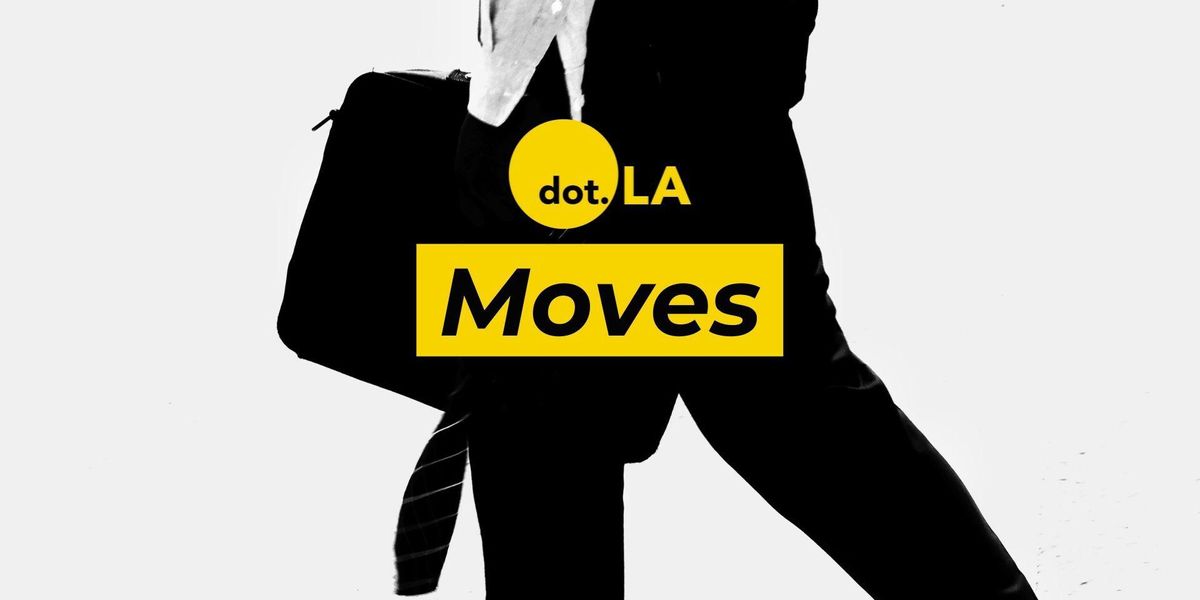

Get in the KNOW
on LA Startups & Tech
X
Image courtesy of Shutterstock
Read the Discrimination Memo Activision Workers Sent to Management
Samson Amore
Samson Amore is a reporter for dot.LA. He holds a degree in journalism from Emerson College. Send tips or pitches to samsonamore@dot.la and find him on Twitter @Samsonamore.
In the wake of a historic, successful unionization drive at Activision Blizzard subsidiary Raven Software, Activision employees in Los Angeles are now ramping up pressure on the video game developer—sending a lengthy memo to management on Tuesday laying out demands on workplace issues ranging from the company’s handling of sexual harassment cases to trans workers’ rights.
The four-page letter, obtained by dot.LA, was sent by members of ABetterABK, a coalition of Activision Blizzard workers that began mobilizing last year amid the high-profile workplace misconduct controversies that have arisen at the Santa Monica-based company. ABetterABK sent the memo one day after employees at Activision’s Wisconsin-based Raven Software studio voted in favor of certifying their Game Workers Alliance union—the first labor union at a major video game publisher in the U.S.
Following that labor victory, ABetterABK, which is not a union, has now taken the initiative and laid out a series of demands to Activision via a newly formed Worker Committee Against Sex & Gender Discrimination. Those demands include ending the practice of mandatory arbitration for discrimination and sexual harassment cases at Activision—which would let accusers take their alleged abusers, as well as the company itself, to court—and requiring that an outside, independent third-party investigate all such claims.
The memo also requests 12 weeks of paid parental leave for all new parents, during which they would receive 100% of their normal compensation and cannot lose their position. It also notes Activision’s “history of discrimination towards employees who lactate,” and calls for workplace practices and facilities that protect and support breastfeeding parents, such as private feeding rooms and breastmilk storage equipment.
There is also a section addressing Activision’s treatment of transgender employees. The memo demands support for trans workers “pre, during and post-transition,” as well as the creation of a “trans network” supporting trans employees at Activision and an “advisory committee of support for [human resources], recruiting and employees at large” regarding trans issues in the workplace.
ABetterABK is also demanding that Activision institute stricter enforcement of its anti-harassment policy for gamers and content creators, who would be subject to bans for violating the policy.
“We believe it is imperative that workers have a voice in Activision Blizzard’s anti-discrimination policies—without that, the company’s culture of harassment and abuse will continue to go unchecked,” ABetterABK member Emily Knief, who works as a senior motion graphic designer at Activision, said in a statement. “We hope to have a productive conversation with leadership where they acknowledge these growing concerns and enact the demands brought forth by the committee.”
Sources told dot.LA that ABetterABK sent its letter Tuesday to Activision CEO Bobby Kotick, chief people officer Julie Hodges and chief diversity, equity and inclusion officer Kristen Hines, who recently joined the company in April.
“We appreciate that these employees want to join with us to further build a better Activision Blizzard and continue the progress we have already made,” an Activision spokesperson said in a statement Tuesday. “We have, for example, already upgraded our lactation facilities, waived arbitration, hired new DEI and EEO leaders, and collaborated with employees to make our policies and processes more Trans inclusive, just to name a few issues the letter raises. We thank these employees, and will continue to work with all of our employees on our journey to be a better Company.”
Heightened tensions between management and employees at Activision come as the game developer looks to finalize its $69 billion sale to Microsoft. While the Seattle tech giant has said that it won’t stand in the way of union efforts at Activision, the gaming company refused to voluntarily recognize the Raven Software union, which set the table for Monday’s vote.
“We respect and believe in the right of all employees to decide whether or not to support or vote for a union,” Activision spokesperson Talia Ron told dot.LA on Monday, in the wake of the Game Workers Alliance’s successful union certification vote. “We believe that an important decision that will impact the entire Raven Software studio of roughly 350 people should not be made by 19 Raven employees.”
Labor organizers working with the Raven employees told dot.LA earlier this year that they hope to expand unionization efforts across the entire company—though there’s no clear indication yet that organizers at ABetterABK or other Activision worker groups are seeking to unionize.
Read the ABetterABK letter to Activision management in its entirety below:
From Your Site Articles
- Activision Asks Court to Dismiss Calif Discrimination Suit - dot.LA ›
- Everything You Need to Know About the Activision Walkout - dot.LA ›
- The Lawsuits Keep Coming for Activision Blizzard - dot.LA ›
- Activision Blizzard Workers Win Union Vote - dot.LA ›
Related Articles Around the Web
Samson Amore
Samson Amore is a reporter for dot.LA. He holds a degree in journalism from Emerson College. Send tips or pitches to samsonamore@dot.la and find him on Twitter @Samsonamore.
https://twitter.com/samsonamore
samsonamore@dot.la
LA Tech ‘Moves’: MeWe Taps Apple Co-founder, Aspiration Swipes Tesla Director
12:00 PM | August 05, 2022
Photo by James Opas | Modified by Joshua Letona
“Moves,” our roundup of job changes in L.A. tech, is presented by Interchange.LA, dot.LA's recruiting and career platform connecting Southern California's most exciting companies with top tech talent. Create a free Interchange.LA profile here—and if you're looking for ways to supercharge your recruiting efforts, find out more about Interchange.LA's white-glove recruiting service by emailing Sharmineh O’Farrill Lewis (sharmineh@dot.la). Please send job changes and personnel moves to moves@dot.la.
***
Aspiration, a sustainable financial services company, appointed former Tesla director Tim Newell as its first chief innovation officer. Prior to leading teams at Tesla, Newell also worked under the Clinton Administration as a deputy director for policy in the White House office of science and technology.
All-electric vehicle manufacturing company Phoenix Motorcars hired industry veterans Lewis Liu as senior vice president of program management office and business development. Phoenix also hired Mark Hastings as senior vice president of corporate development and strategy and head of investor relations.
Counterpart, a management liability platform, welcomed Claudette Kellner as insurance product lead and Eric Marler as head of claims. Kellner served at Berkley Management Protection as vice president, while Marler previously served as an assistant vice president at the Hanover Insurance Group.
Legal tech and eDiscovery veteran Mark Wentworth joined compliance software company X1 as external vice president of sales and business development.
Sameday Health, a testing and healthcare provider, named Sarah Thomas as general counsel. Thomas previously served at digital health company Favor.
MeWe, an ad-free and privacy-first social network, tapped the co-founder of Apple Steve Wozniak to its advisory board, and co-founder of Harvard Connection Divya Narendra to its board of directors.
Internet marketplace Ad.net, welcomed former Interpublic CEO David Bell to its board of directors.
Science and technology company GATC Health, appointed addiction specialist Jayson A. Hymes as a new advisory board member.
AltaSea, a non-profit organization that aims to accelerate scientific collaboration, added South Bay philanthropist Melanie Lundquist to its board of trustees.
Correction:An earlier version stated Divya Narendra was added to MeWe's advisory board.
From Your Site Articles
Related Articles Around the Web
Read moreShow less
Decerry Donato
Decerry Donato is a reporter at dot.LA. Prior to that, she was an editorial fellow at the company. Decerry received her bachelor's degree in literary journalism from the University of California, Irvine. She continues to write stories to inform the community about issues or events that take place in the L.A. area. On the weekends, she can be found hiking in the Angeles National forest or sifting through racks at your local thrift store.
Here's How To Get a Digital License Plate In California
03:49 PM | October 14, 2022
Photo by Clayton Cardinalli on Unsplash
Thanks to a new bill passed on October 5, California drivers now have the choice to chuck their traditional metal license plates and replace them with digital ones.
The plates are referred to as “Rplate” and were developed by Sacramento-based Reviver. A news release on Reviver’s website that accompanied the bill’s passage states that there are “two device options enabling vehicle owners to connect their vehicle with a suite of services including in-app registration renewal, visual personalization, vehicle location services and security features such as easily reporting a vehicle as stolen.”
Reviver Auto Current and Future CapabilitiesFrom Youtube
There are wired (connected to and powered by a vehicle’s electrical system) and battery-powered options, and drivers can choose to pay for their plates monthly or annually. Four-year agreements for battery-powered plates begin at $19.95 a month or $215.40 yearly. Commercial vehicles will pay $275.40 each year for wired plates. A two-year agreement for wired plates costs $24.95 per month. Drivers can choose to install their plates, but on its website, Reviver offers professional installation for $150.
A pilot digital plate program was launched in 2018, and according to the Los Angeles Times, there were 175,000 participants. The new bill ensures all 27 million California drivers can elect to get a digital plate of their own.
California is the third state after Arizona and Michigan to offer digital plates to all drivers, while Texas currently only provides the digital option for commercial vehicles. In July 2022, Deseret News reported that Colorado might also offer the option. They have several advantages over the classic metal plates as well—as the L.A. Times notes, digital plates will streamline registration renewals and reduce time spent at the DMV. They also have light and dark modes, according to Reviver’s website. Thanks to an accompanying app, they act as additional vehicle security, alerting drivers to unexpected vehicle movements and providing a method to report stolen vehicles.
As part of the new digital plate program, Reviver touts its products’ connectivity, stating that in addition to Bluetooth capabilities, digital plates have “national 5G network connectivity and stability.” But don’t worry—the same plates purportedly protect owner privacy with cloud support and encrypted software updates.
5 Reasons to avoid the digital license plate | Ride TechFrom Youtube
After the Rplate pilot program was announced four years ago, some raised questions about just how good an idea digital plates might be. Reviver and others who support switching to digital emphasize personalization, efficient DMV operations and connectivity. However, a 2018 post published by Sophos’s Naked Security blog pointed out that “the plates could be as susceptible to hacking as other wireless and IoT technologies,” noting that everyday “objects – things like kettles, TVs, and baby monitors – are getting connected to the internet with elementary security flaws still in place.”
To that end, a May 2018 syndicated New York Times news service article about digital plates quoted the Electronic Frontier Foundation (EFF), which warned that such a device could be a “‘honeypot of data,’ recording the drivers’ trips to the grocery store, or to a protest, or to an abortion clinic.”
For now, Rplates are another option in addition to old-fashioned metal, and many are likely to opt out due to cost alone. If you decide to go the digital route, however, it helps if you know what you could be getting yourself into.
From Your Site Articles
- 8 Alternatives to Uber and Lyft in California - dot.LA ›
- Automotus Will Monitor Santa Monica's New Drop-Off Zone - dot.LA ›
- Metropolis CEO Alex Israel on Parking's Future - dot.LA ›
Related Articles Around the Web
Read moreShow less
Steve Huff
Steve Huff is an Editor and Reporter at dot.LA. Steve was previously managing editor for The Metaverse Post and before that deputy digital editor for Maxim magazine. He has written for Inside Hook, Observer and New York Mag. Steve is the author of two official tie-ins books for AMC’s hit “Breaking Bad” prequel, “Better Call Saul.” He’s also a classically-trained tenor and has performed with opera companies and orchestras all over the Eastern U.S. He lives in the greater Boston metro area with his wife, educator Dr. Dana Huff.
steve@dot.la
RELATEDTRENDING
LA TECH JOBS


